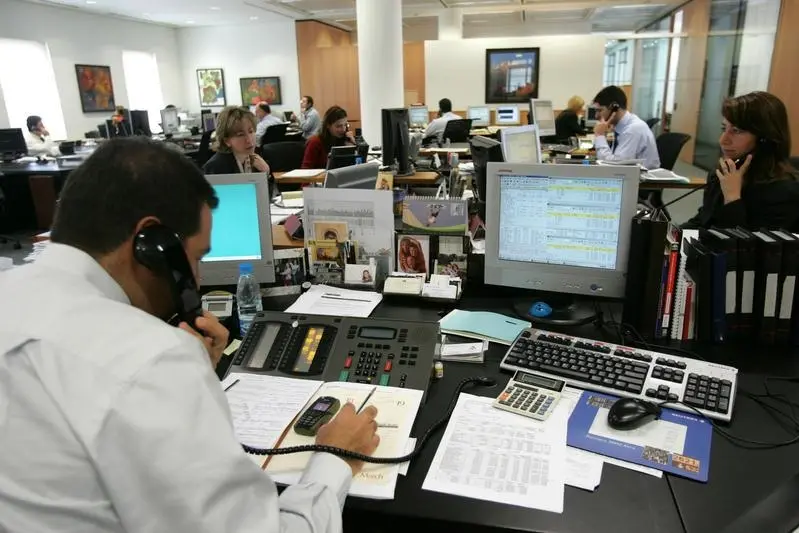PHOTO
BEIRUT: The budget deficit officially stood at 11.71 percent of GDP in 2018 compared to 9.28 percent in 2017, the Finance Ministry said, finally releasing the overdue results Monday.
It is not clear why it took the ministry so long to publish last years financial results.
Most economists had expected the deficit to climb to more than 11 percent for 2018.
The World Bank, the International Monetary Fund and international rating agencies have expressed deep concern over the alarming and unabated rise of the deficit, warning that Lebanon can no longer ignore the problem.
The government of Prime Minister Saad Hariri held around 20 sessions to hammer out the 2019 draft budget in a bid to slash unnecessary spending and increase revenues.
Last week, Hariri sent a strong message to Parliament on the need to maintain a budget deficit agreed upon by the Cabinet last month as part of essential reforms to salvage the countrys ailing economy.
Hariris plea came amid concerns expressed by some politicians and economic experts that the Cabinet would not be able to deliver on its promises made in the draft 2019 state budget, which seeks to reduce Lebanons deficit to 7.59 percent of gross domestic product.
Finance Minister Ali Hasan Khalil has promised to abide by the target set out in the draft budget.
According to the tables provided by the Finance Ministry, total government revenues in 2018 amounted to LL17.405 trillion ($11.33 billion), while total expenditures reached LL26.820 trillion, leaving a deficit of LL9.515 trillion.
In 2018, the government allocated LL2.647 trillion to the state-owned Electricite du Liban, compared to LL2 trillion in 2017 - an increase of 32.26 percent.
The Finance Ministry usually lends EDL money to purchase gasoil and fuel oil to operate the countrys aging power plants.
Electricity spending is one of the major problems facing the government. But based on the new budget and other plans, the Finance Ministry aims to gradually reduce allocations to EDL. The government also plans to increase electricity tariffs in the coming years.
On the revenue side, the Finance Ministry said income generated from the telecoms sector in 2018 fell by more than 16 percent compared to 2017. It did not give an explanation for the drop.
Telecoms revenues are usually considered the Treasurys third source of income, after Customs and value added tax.
The international community has urged Lebanon to check the rise of its public debt or at least achieve higher GDP growth each year in order to unlock over $11 billion in grants and soft loans pledged at last years CEDRE conference.
According to the data published by the Finance Ministry, the countrys gross debt reached $85.8 billion at end-April 2019, up by 0.8 percent from the level seen at end-2018.
Domestic debt was higher by 1.8 percent from end-2018, to reach a total of $52.6 billion at end-April 2019. Lebanons external debt fell by 0.7 percent from end-2018 to stand at around $33.3 billion at end-April 2019.
In this context, the public sector deposits at the Central Bank fell by 26.7 percent from end-2018 to stand at $3.7 billion at end-April 2019. The public sector deposits at commercial banks edged up by 7.9 percent from end-2018 to reach $4.7 billion at end-April 2019, Bank Audis Lebanon Weekly Monitor said.
It added that, net public debt, which excludes public sector deposits at the Central Bank and commercial banks from overall debt figures, increased by 2.2 percent from end-2018 to reach a total of $77.4 billion at end-April 2019.
Net domestic debt amounted to $44.2 billion at end-April 2019, up by 4.6 percent from end-2018.
Copyright 2019, The Daily Star. All rights reserved. Provided by SyndiGate Media Inc. (Syndigate.info).





















